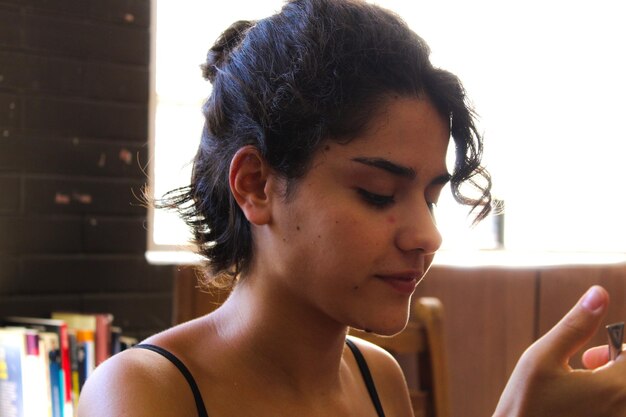Unraveling the Mystery: Can Milk Cause Acne?
Do you ever find yourself scanning the mirror, wondering if your latest breakout can be traced back to yesterday's milkshake or your habitual bowl of cereal? The notion that milk might cause acne has been a hot topic of debate among skincare enthusiasts and health experts alike. But what's the truth behind this creamy concoction's pimple-producing potential? Let's dive into the evidence and explore multiple angles to understand whether your daily dairy intake might be messing with your skin.
Understanding Acne: A Brief Overview
Before delving into how milk might affect your skin, it's essential to understand what causes acne. Acne is primarily influenced by:
- Hormones: Primarily testosterone, which increases oil production.
- Bacteria: Propionibacterium acnes, contributing to inflammation and infection.
- Dead Skin Cells: Blocked hair follicles leading to clogged pores.
- Oil Production: Excessive sebum that plugs pores.
Diet can indeed influence these factors, but how does milk fit into this equation?
Milk and Hormones: The Core Connection
One of the main avenues through which milk might influence acne is via hormones. Milk contains several hormones—whether natural or artificially introduced—that could exacerbate acne.
The Role of IGF-1
Insulin-like Growth Factor 1 (IGF-1) is a hormone found in milk that has been linked to increased sebum production.
- Why It Matters: Higher sebum production can lead to clogged pores and, consequently, more acne.
- Scientific Insight: Studies suggest a correlation between high IGF-1 levels and the severity of acne. Milk consumption may elevate IGF-1 levels, potentially triggering or worsening acne.
Androgens in Milk
Milk, particularly milk from pregnant cows, contains androgens, which can increase oil production in the skin.
- Trigger Alert: An uptick in these hormones could lead to heightened oiliness, making your skin more prone to breakouts.
- Connection: While there's no direct causation established, many acne sufferers report clearer skin upon reducing milk intake.
Skim Milk vs. Whole Milk: Does Type Matter?
Interestingly, the type of milk might play a role in how it affects your skin.
Skim Milk
- Observation: Multiple studies point to a stronger association between acne and skim milk compared to whole milk.
- Hypothesis: The process of skimming might alter the hormonal or bioactive profile of milk, potentially making it more acne-inducing.
Whole Milk
- Differentiation: Whole milk, while still an issue for some, appears less consistently associated with acne than its skimmed counterpart. Some hypothesize the fat content might moderate hormonal effects.
Milk Alternatives: Are They a Safer Bet?
With more people exploring non-dairy alternatives, it's worth considering whether these substitutes impact acne differently.
Plant-Based Milks
- Almond, Soy, and Oat Milk: Largely free from the hormones found in cow's milk, these alternatives might be less likely to trigger acne.
- Considerations: Some plant milks, like soy, have their own hormone-like compounds (phytoestrogens), but current evidence doesn't link these to acne.
Lactose-Free Milk
- Distinction: Lactose-free milk removes lactose but not the hormones in cow's milk. Thus, its effect on acne may be similar to regular milk.
Practical Steps: Managing Dairy and Acne
If you suspect milk is contributing to your acne, consider some practical changes:
Moderation and Trial
- Step Back: Try reducing your milk intake gradually and observe any changes in your skin over a few weeks.
- Keep a Journal: Document your diet and skin condition to pinpoint potential links between milk consumption and breakouts.
Explore Alternatives
- Diverse Diet: Swap cow's milk for plant-based options and monitor your skin's response.
- Mindful Consumption: Opt for products labeled hormone-free to potentially reduce acne-triggering hormones.
Consult a Professional
- Seek Expertise: If dietary changes don't impact your acne, consult with a dermatologist or nutritionist to explore other causes and treatments.
Related Considerations: Beyond Milk and Acne
Diving into the relationship between milk and acne is just one piece of the skincare-diet puzzle. Here are other factors to consider:
Sugar and High Glycemic Index Foods
- Impact: High sugar consumption can spike insulin levels, potentially affecting acne.
- Tip: Pair changes in dairy intake with an evaluation of overall dietary sugar.
Balanced Diet and Hydration
- Holistic Approach: Ensure a balanced diet rich in fruits, vegetables, and adequate water. A well-rounded diet supports overall skin health.
Stress and Lifestyle
- Influence: Manage stress through mindfulness, exercise, and adequate sleep to prevent stress-related breakouts.
Skincare Routine
- Consistency: Use gentle, non-comedogenic skincare products to support clear skin.
Wrapping Up the Dairy Dilemma
The dialogue around milk and acne remains active and nuanced. For some, milk may be a hidden culprit behind breakouts, while others might enjoy it without any skin issues. Recognizing individual sensitivity to dairy can empower you to make informed decisions in your skincare journey.
Remember, acne is multifactorial—if milk isn’t your skin’s best friend, it might not be the sole enemy either. Tuning into your body and observing how it reacts allows you to find what truly nourishes your skin.
Quick Takeaways and Tips 📝
- Milk contains hormones like IGF-1 and androgens, which may worsen acne.
- Skim milk has a stronger link to acne than whole milk.
- Try plant-based milks as a dairy alternative to reduce hormonal intake.
- Monitor your diet and skin with a simple journal to identify triggers.
- Consult a dermatologist for personalized advice if dietary changes don't work.
- Consider broader dietary and lifestyle changes, such as reducing sugar intake and managing stress for comprehensive skincare. 🌿
Adjusting your relationship with milk might just be a step toward clearer skin—remain patient and proactive in your approach! 🌟

